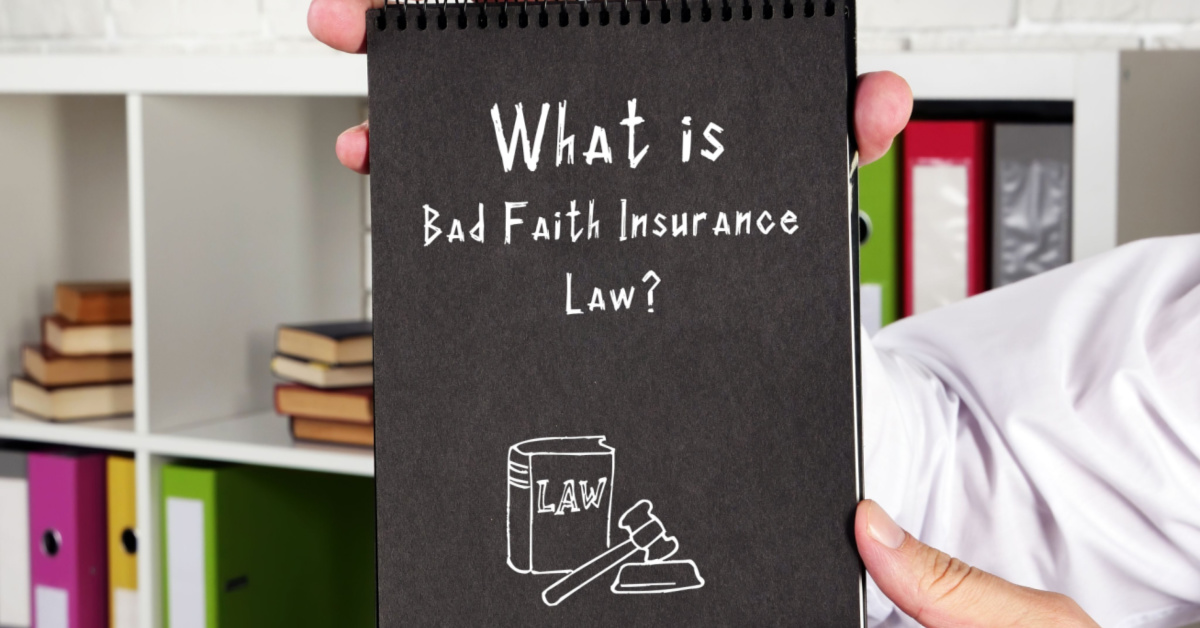Eleventh Circuit: Disagreement Over Valuation Is Not Per Se Bad Faith
Eleventh Circuit: Disagreement Over Valuation Is Not Per Se Bad Faith
A little more than one year after Progressive scored a bad faith win in Eres v. Progressive American Ins. Co., 998 F.3d 1273 (11th Cir. 2021), Progressive came away with another victory in Deary v. Progressive American Ins. Co. (unpublished), decided on July 25, 2022. Citing to Eres, the court in Deary reaffirmed that summary judgment should be granted to an insurer where no reasonable jury could conclude that the insurer acted in bad faith. As set forth in more detail below, the Eleventh Circuit in Deary found that Progressive acted promptly, communicated with its insured, and reasonably valued the claim at issue.
Claim Facts
Deary arose out of a March 17, 2017 automobile accident in which Progressive determined that its insured was one hundred percent at fault. Progressive quickly resolved one bodily injury claim for $500 and a second bodily injury claim was asserted about three weeks later. Progressive informed its insured of the new claim and began to investigate the claim. Progressive mailed two letters to its insured, advising him that a claim potentially exceeding his $25,000 per person policy limits had been filed, and that an attorney would be appointed for him if a lawsuit was filed. One of those letters was returned as undeliverable, but an adjuster followed up with a phone call to the insured.
On July 17, 2017, the claimant’s attorney made a policy limits demand that would expire on August 7. A Progressive adjuster evaluated the demand and medical records (out of pocket expenses were just over $1,600) and determined that an appropriate settlement range was between $8,500 and $12,701. Progressive offered $8,500 to the claimant on August 3. The claimant’s attorney replied by again demanding the full $25,000 policy limits and extending the demand deadline to August 14. However, no additional information about the claimant’s condition or medical records was provided. Progressive requested an extension of time to respond to the demand, which was denied, and then re-offered $8,500 on August 11. The claimant’s attorney rejected the offer and advised that a lawsuit would follow. Later, the claimant’s attorney advised Progressive that the claimant was scheduled to undergo surgery and that the $25,000 demand was withdrawn.
Months later, Progressive received documentation that the claimant had undergone surgery and that the gross medical bills exceeded the $25,000 policy limits. Progressive immediately instructed the defense counsel to file a $25,000 proposal for settlement, which was rejected. The claimant went on to win a jury verdict against the insured for $332,500. The insured assigned his rights to the claimant, who filed suit for bad faith.
The Bad Faith Case
The trial judge granted summary judgment in favor of Progressive, and the sole issue on appeal was whether the court erred in concluding that no reasonable jury could find that Progressive acted in bad faith. The plaintiff argued that Progressive could and should have settled for the policy limits if it had acted fairly and honestly towards its insured. The Eleventh Circuit panel disagreed with that argument, finding that the undisputed facts revealed that Progressive “acted with reasonable diligence and ordinary care” for three reasons:
1) Progressive took reasonable steps to communicate with its insured, to protect him from a potential excess judgment, from the moment it learned of the accident.
-The court noted that “Progressive consistently attempted to reach [its insured] using multiple methods of communication,” which was notable because several certified letters were returned as undeliverable.
2) A reasonable jury could not find that Progressive’s actions in making an offer to settle were evidence of bad faith simply because the initial offer failed to reach the policy limits.
-The court reasoned that “disagreement over the valuation of a claim . . . does not equate to per se bad faith.” Progressive’s initial offer was more than five times the claimant’s out-of-pocket expenses that were documented at that time.
-The court noted that Progressive’s later policy-limits offer was “immediately rebuffed” by the claimant’s attorney, which was “conduct that factored into our analysis.”
3) The delay in tendering the policy limits until June 2018 was not evidence of bad faith.
-The court reasoned that the claimant “had expressly disclaimed any willingness to settle as of September 18, 2017,” and Progressive “was not bound to try and overcome” the claimant’s intention not to settle.
Takeaways
Although this opinion will be unpublished, Deary reiterates a key point in bad faith law: that an insurer is not liable for bad faith where it has complied with its good faith duties and merely disagrees over the claim value. In addition, the opinion importantly notes that the conduct of a claimant or a claimant’s attorney can factor into a bad faith analysis. While focusing solely on a claimant’s actions would be improper, factoring the claimant’s actions in a totality of the circumstances analysis is permissible.
Finally, this case shows that federal court remains a favorable venue for insurers defending bad faith claims with summary judgment potential. Deary is the latest in a string of post-Eres cases affirming summary judgment for insurers. See Pelaez v. GEICO, 13 F.4th 1243 (11th Cir. Sept. 20, 2021), Robles v. GEICO Indem. Co., 2021 WL 4451971 (11th Cir. Sept. 29, 2021), and Ellis v. GEICO Gen. Ins. Co., 2022 WL 454176 (11th Cir. Feb. 15, 2022).







